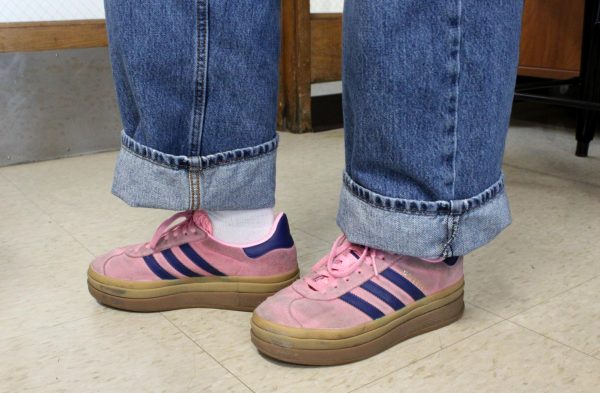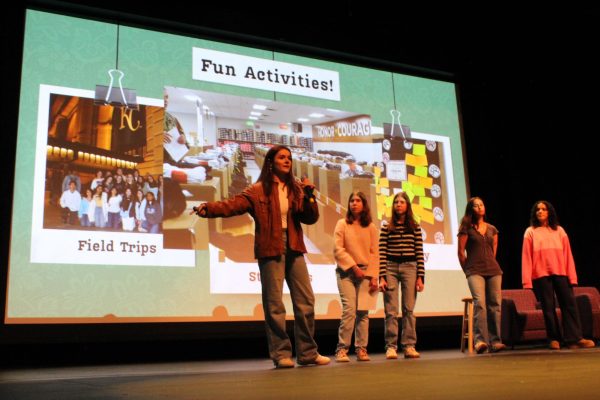Adopting a New Perspective
Keyda Feltner is the only adoptee featured that doesn’t have only adopted siblings and additionally has siblings that are biologically related to her parents. She feels closest to her adopted sister, but she would do anything for any of her family members.
Over the years, popular culture has portrayed adoption or foster care in a variety of ways. There’s Annie, a little girl in the Great Depression who is swept away to an orphanage and eventually adopted by a millionaire. More recently, there was the book and movie “The Blind Side,” where Sandra Bullock’s character and her family take in a troubled football player whom they quickly embrace as one of their own. And there’s “The Jungle Book,” where a baby is abandoned in the forest and grows up among a pack of wolves and becomes a “Man Cub.”
These media portrayals are often very different than how things happen in real life.
While being placed into foster care or being adopted can be a traumatic or disruptive experience in some cases, it can also occur at such a young age that there are few or no negative memories attached to one’s adoption.
“My mom and dad love my sister and I as if we were their own blood- children. There’s never been a divide or an awkward gap,” explained senior Anna Meershaert, who was adopted from China, specifically the Wuhan province, and also has an adopted younger sister.
“I don’t consider my family like step or half siblings. I just call my sister, my sister or my mom, my mom,” stated Meerschaert.
Meerschaert explained that, in her situation, most of the negative connotation surrounding being an adopted child is actually not accurate, stating that her biological parents “wanted to give [her] so much opportunity in a different place than there was in China.”
Furthermore, she expressed that people in China typically view a child as very lucky if they are adopted by American parents. She stated that they consider the child “very fortunate or blessed.”
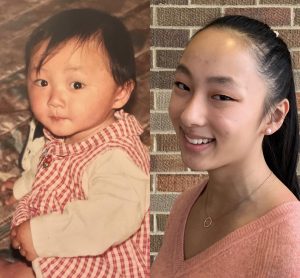
For Anna Meerschaert, her family is not different to her because she is adopted and feels just as close to them as she would if they were her biological family.
Senior Erin Custod was 18 months old when she was adopted, but it has still affected her throughout her life.
Custod was adopted through an agency near the Nanjing province in China and has an adopted sister who is six years younger than her. Like many other adoptees, Custod doesn’t have much information from her life before she was adopted, but she does know that she was left outside of a bus station in China.
“My sister and I used to struggle a lot with abandonment issues, and it’s not like we remember being abandoned, but it was just kind of an internal subconscious thing,” stated Custod. “We didn’t want to feel abandoned again, so instead my sister and I just kind of leaned on each other for support.”
Custod described their tendency to push people away when getting close to someone new and difficulty connecting to other people.
“My sister has been kind of my rock since day one, and we just kind of get what the other is going through. It’s really nice to know that we’re both there for each other when other people might not be,” said Custod.
Senior Keyda Feltner, originally from San Angelo, Texas, was placed into the foster care system as a newborn. After 28 days in the system, she moved in with the Feltner family, who adopted her three years later.
Feltner has three brothers and one sister, who is also adopted. She explained how she and her adopted sister feel “closer just because we kind of have similar ideas and questions about our pasts.”
“My family is crazy but it’s like a fun crazy. I love my family, [and] there is nothing in the world that I wouldn’t do for them,” Feltner explained.
Along with Meerschaert, Feltner described the negative connotation upon being an adoptee and stated that “people just automatically think, ‘Oh, well you were put in a bad circumstance so you got removed or taken from that situation.’” However, adoption can be the result of many different situations.
“Adoption can be something like your dad and your mom not being married and your step dad decides to adopt you,” Feltner explained.
Both Custod and Meerschaert described others expecting them to have a vast knowledge of the Chinese culture, even though they were both infants when adopted and have lived in the U.S. for as long as they can remember.
“Sometimes I get asked, ‘Oh, you’re Chinese, say something in Chinese to me’ or I’ll get questions about Chinese culture. They expect me to act like my culture and know all these things about it, even though I wasn’t even raised there,” stated Custod.
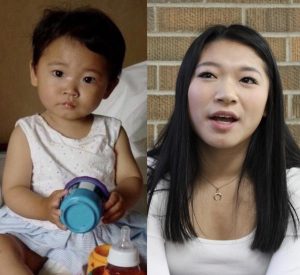
Erin Custod repeatedly stated how important her sister has been to her especially because her sister understands the feelings that Erin has about being adopted.
Even if they do not speak the language fluently or have a personal connection from that culture, some families celebrate where their adopted children are from. Both Meerschaert and Custod described the different ways that their families celebrate traditional Chinese holidays.
“My parents always celebrated my Chinese background. We used to celebrate Chinese New Year, and my parents would try to incorporate whatever they could into my daily life just so that I didn’t feel like we were leaving all that behind,” stated Meerschaert.
She described how she no longer feels the need to celebrate the Chinese New Year because she’s “not actively seeking out to grasp onto something from this culture.”
“I think what a lot of people struggle with when they are adopted is ‘How do I hold onto my culture from where I was born but then also connect to my culture here in America?’” said Meerschaert. She explained how she “never felt like [she was] out of place.”
“I think one of the biggest things that can make you feel out of place is race, but that stems from identity,” Meerschaert said. She explained that she always felt acclimated because her identity doesn’t stem from her Chinese background, but rather is rooted in her life in the U.S.
Some families with adoptees, like the Custods, celebrate their own holiday, called Coming-Home Day. This day symbolizes the day the children were adopted and brought home.
“Me and my sister actually have the same coming home day which makes that day extra special,” said Custod. She described how on their Coming-Home Day, every July 27, the family makes a trip to their favorite Chinese restaurant, Tang’s in Grayslake.
All three seniors have closed adoption cases, meaning that the adoption agency does not give any information about the child’s biological parents, if any is known at all. Once the child turns 18 years old, all documents and legal papers will be handed over to the adoptee, if any exist.
Although 135,000 children are adopted in the United States each year, every child has a different story when it comes to their adoption process. Some children might spend up to 2-5 years in the foster care system waiting for a family while others may be adopted from overseas, according to the Adoption Network. There are, however, 428,000 foster children in the U.S. waiting for a family and hundreds of thousands more all over the world.
While not every adoption is the picture perfect kind that is portrayed in the media, the three seniors are happy and content with where they are currently at.



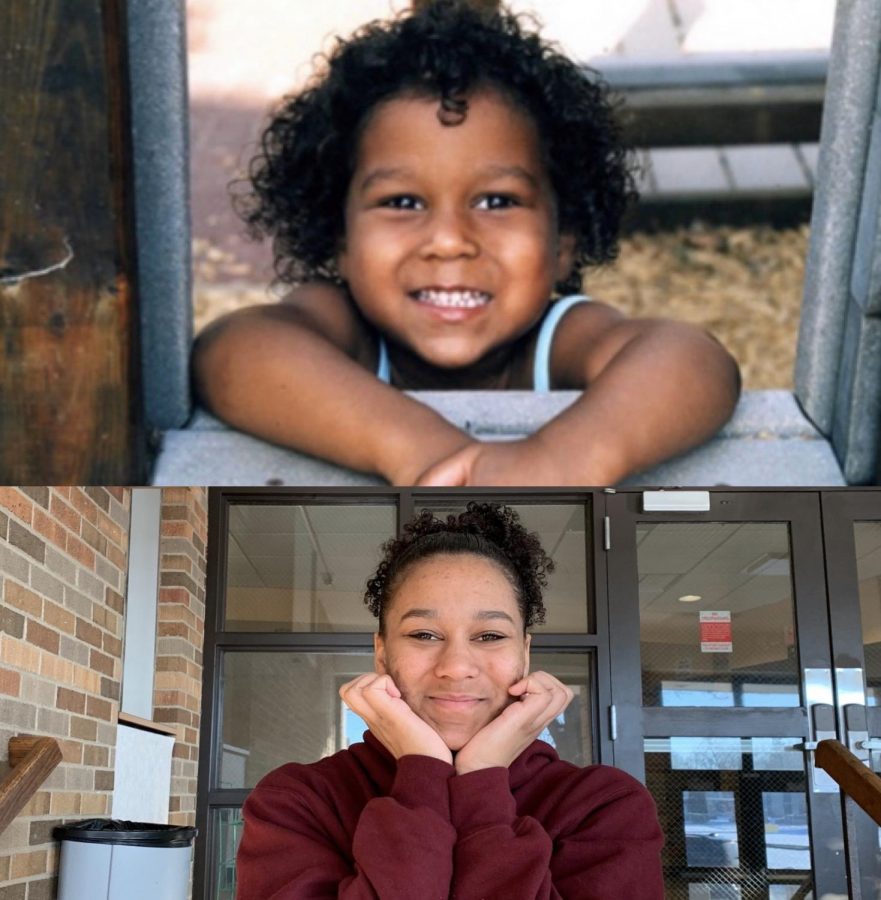
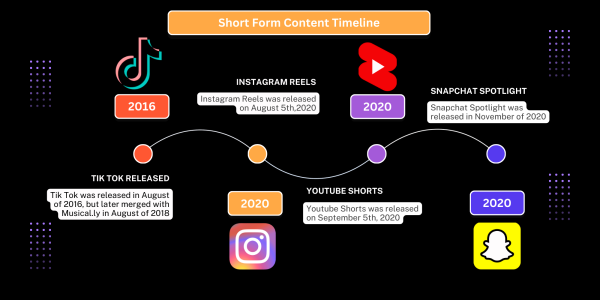
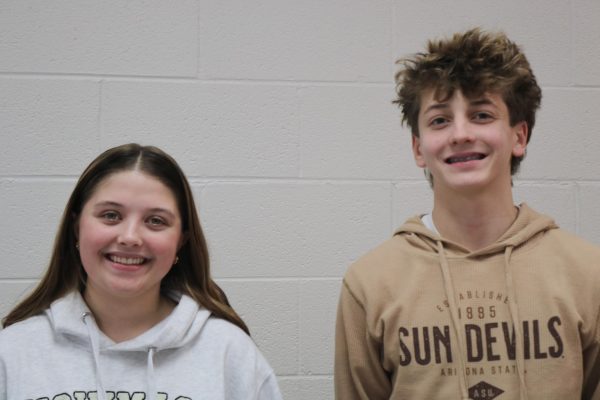
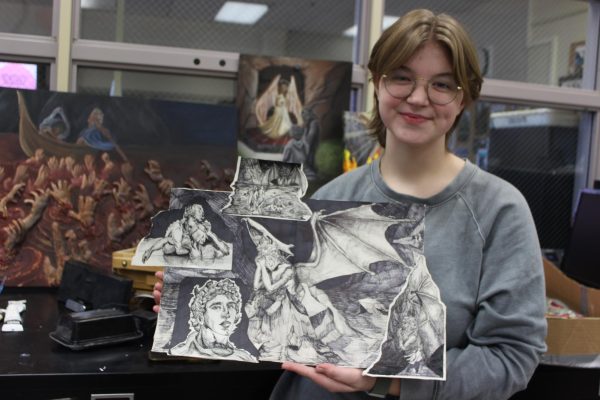
![Senior River Thompson joins the Jazz Ensemble by singing “That Old Black Magic” by Mercer and Arlen Arr. Mark Taylor, along with senior Annie Brody on guitar and junior Thomas Teixeira on bass, earning big applause. “[The concert had] great energy because it's the last [jazz concert] of the year,” Brody said.](https://www.lhsdoi.com/wp-content/uploads/2025/04/Eight-That-Old-Black-Magic-600x400.jpg)
![Mr. Abullh Ali, manager/assistant, helps open Queen Yemeni Coffee in downtown Libertyville at 606 North Milwaukee Ave. With the help of employees such as manager and LHS senior Yousef Taha, they are able to bring the Yemeni and Ethiopian culture to Libertyville by using their Queen spices, cinnamon and cardamom in their drinks such as Adani Chai, which is inspired by Sheda, the Queen of Yemen and Ethiopia. “The history of our coffee [is] a long history and we believe that Yemen and Ethiopia started the coffee and we are bringing something unique to the community,” Mr. Ali said.](https://www.lhsdoi.com/wp-content/uploads/2025/04/Photo-1-600x400.jpg)
